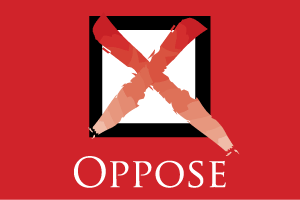 A California Chamber of Commerce-opposed bill that amends the California Constitution to limit the ability of voters to reduce taxes faces a critical vote in the California legislature today.
A California Chamber of Commerce-opposed bill that amends the California Constitution to limit the ability of voters to reduce taxes faces a critical vote in the California legislature today.
If the proposal is approved by both houses, it will appear before California voters on the March 2024 ballot.
The bill, ACA 13 (Ward; D-San Diego), amends the California Constitution to require a higher voter approval requirement for citizen-proposed ballot initiatives that seek to increase protections for adoption of new taxes–but does not impose that same voting threshold burden for tax increases placed on the ballot by the Legislature or local governments.
A ballot measure slated for the November 2024 ballot proposes, among other things, to address an appellate court decision that stretched legal reasoning to allow local proposed tax increases placed on a ballot by voter initiative to be approved by a majority vote rather than the historic two-thirds voter approval requirement.
Since the repair of this court decision would restore the two-thirds vote threshold, under the terms of ACA 13, the ballot measure would require a two-thirds statewide vote to prevail.
Comparatively, a pending constitutional amendment in the Legislature, ACA 1, would reduce the voter threshold to approve higher taxes from two-thirds to 55% voter approval, yet would only need a majority of voters to approve this measure if placed on the ballot instead of 55% voter approval.
The only distinction between this measure and the currently pending ballot initiative referenced above, is the Legislature will have placed it on the ballot, not citizens.
In a letter sent to legislators, the CalChamber pointed out that this inconsistent application of voter approval creates a concerning and unfair balance between the Legislature’s ability to raise taxes and the voters’ ability to utilize the initiative process to check local government and the Legislature’s authority.

